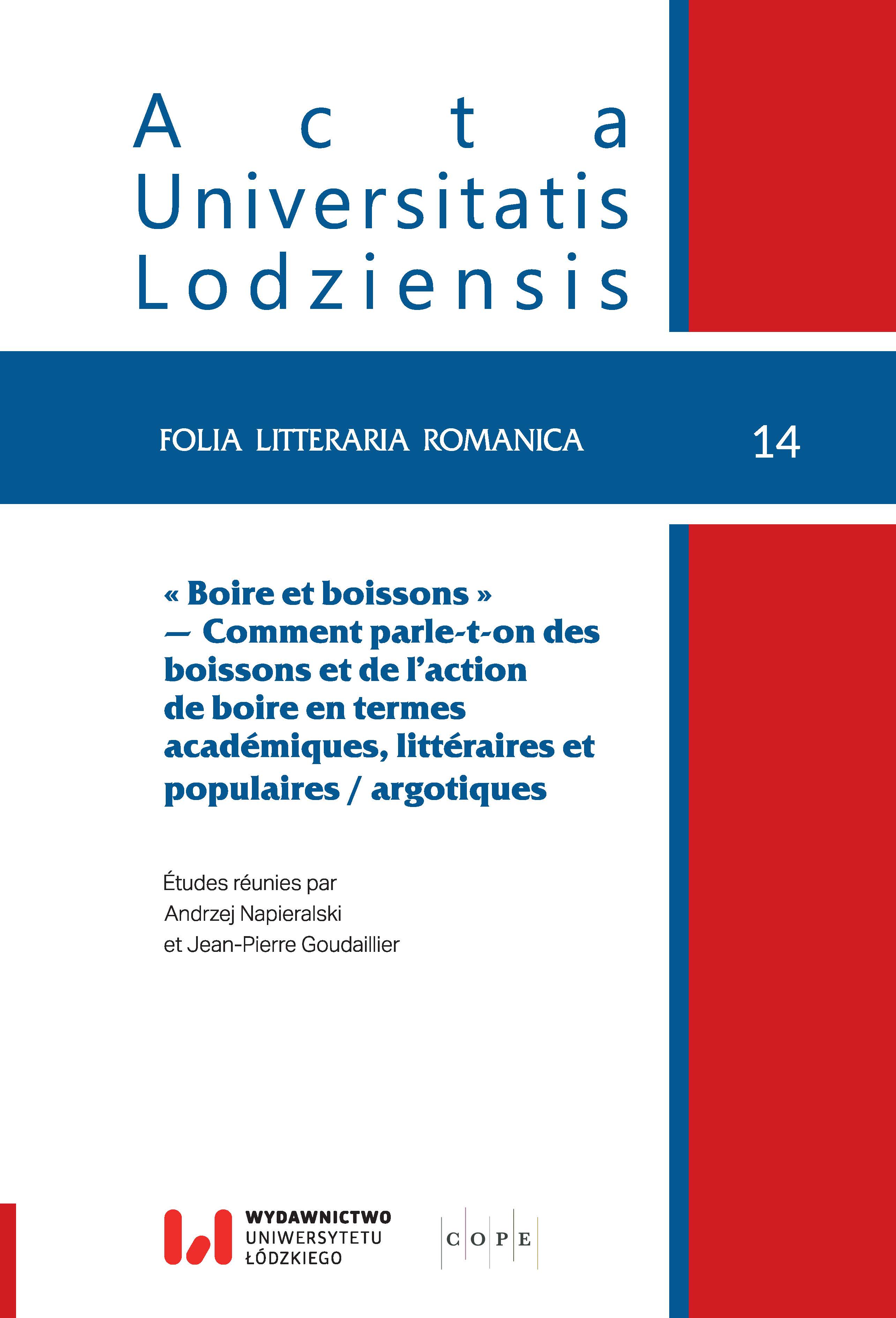Causative Constructions with the Verb ‘boire’: A French-Polish Contrastive Analysis
DOI:
https://doi.org/10.18778/1505-9065.14.10Keywords:
causative construction, causative predicate, contrastive analysisAbstract
This paper analyses the French causative construction ‘faire boire’ and its equivalents in the Polish language. The basic causative predicate which translates the sense of faire boire is the verb ‘poić’ and its prefixal aspectual equivalents. The aim of the analysis is to observe the regularities that occur in the choice of the Polish verb at the moment of the translation of ‘faire boire’. The analysis shows that, depending on the meaning of ‘faire boire’ – one distinguished on the basis of a semantic-syntactic construction – the Polish language selects different verbs. The use that we can call prototypical is translated into Polish with ‘poić/napoić’, referring to both humans and animals. However, if N1 belongs to the class [alcohol], the Polish language selects either ‘napoić’ (meaning: not excessively), or ‘spoić’ (meaning: in excess). The presence of the quantifier in position N1 blocks the use of the verb ‘poić’. The French passive construction ‘se faire boire’ can be translated with the predicate ‘wsiąkać / wsiąknąć’, showing no causativity.
Downloads
References
Base textuelle Frantext, https://www.frantext.fr/
Google Scholar
Bat-Zeev Shyldkrot, Hava, « Présentation. Les auxiliaires : délimitation, grammaticalisation et analyse », Langages, 1999, no 135, Paris, Armand Colin, p. 3-7
Google Scholar
Ducrot, Oswald et Schaeffer, Jean-Marie, Nouveau dictionnaire encyclopédique des sciences du langage, Paris, Editions du Seuil, 1995
Google Scholar
Grevisse, Maurice, Le Bon usage, Louvain-la-Neuve, Duculot, 1993
Google Scholar
Gross, Maurice, « Les bases empiriques de la notion de prédicat sémantique », in Langages, 1981, no 63, Paris, Armand Colin, p. 7-52
Google Scholar
DOI: https://doi.org/10.3406/lgge.1981.1875
Les Verbes français de Jean Dubois et Françoise Dubois-Charlier (Version LVF+1), http://rali.iro.umontreal.ca/rali/?q=fr/lvf
Google Scholar
Narodowy Korpus Języka Polskiego, http://nkjp.pl/
Google Scholar
Polguère, Alain, Lexicologie et sémantique lexicale, Montréal, Les Presses de l’Université de Montréal, 2008
Google Scholar
Ponchon, Thierry, Sémantique lexicale et sémantique grammaticale : le verbe ‘faire’ en français médiéval, Genève, Librairie DROZ S.A., 1994
Google Scholar
Riegel, Martin, Grammaire méthodique du français, Paris, Presses Universitaires de France, 1994
Google Scholar
Słownik Języka Polskiego PWN, https://sjp.pwn.pl/
Google Scholar
Stosic, Dejan, « Le rôle des préfixes dans l’expression du déplacement. Eléments d’analyse à partir des données du serbo-croate et du français », Cahiers de Grammaire, Toulouse, Université de Toulouse-le-Mirail, 2001, no 26, p. 207-228, consulté le 21.05.2018
Google Scholar
Trésor de la Langue Française informatisé, http://atilf.atilf.fr/
Google Scholar
Wielki Słownik Języka Polskiego, http://www.wsjp.pl/
Google Scholar
Zatorska, Agnieszka, « Z problematyki polskich i słoweńskich analityzmów kauzatywnych z parafrazą przymiotnikową », Studia z Filologii Polskiej i Słowiańskiej, Warszawa, Instytut Slawistyki Polskiej Akademii Nauk, 2015, no 50, p. 237-248
Google Scholar
DOI: https://doi.org/10.11649/sfps.2015.014
Downloads
Published
How to Cite
Issue
Section
License

This work is licensed under a Creative Commons Attribution-NonCommercial-NoDerivatives 4.0 International License.













